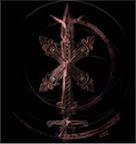FULL CONTROL AND NON-CONTROL
Posts
Pages:
1
This topic is something that hit me a couple of days ago. The full control over your characters versus a more open approach.
Non-control of things in a game is something most commonly seen in sim and strategy games. It means that you give orders to people but the people try to accomplish these orders on their own. In certain simulators it also means tweaking sliders and stuff like that. For example in a football management game you tweak some sliders and formations for an upcoming game but once the game starts you have limited control over the players.
Another example is Dwarf Fortress where you set an area to be dug out and then the miners seek out these areas and dig at them at their own leisure.
And then the third example is Ogre Battle where you set formations and fighters in a unit but once the battle starts you no longer have any control over the fighters.
So this is what non-control over characters is. Recently I had the realization that this non-control is one of the reasons I love certain games. The three examples above for example. But I've always had a fascination with non-control. Many of the game concept ideas I have involved giving orders and hope that the individual guys (that I have no control over) pull through.
So is there anyone else that likes the openess of just influencing stuff in the game rather than directly controlling every aspect? Or do you think that not being able to control everything is a frustrating thing? (Bad AI can really kill off the non-control. But defining the rules clearly helps like in Ogre Battle. The AI is not brilliant but the rules for what each character does in battle are so simple that it works anyway)
Non-control of things in a game is something most commonly seen in sim and strategy games. It means that you give orders to people but the people try to accomplish these orders on their own. In certain simulators it also means tweaking sliders and stuff like that. For example in a football management game you tweak some sliders and formations for an upcoming game but once the game starts you have limited control over the players.
Another example is Dwarf Fortress where you set an area to be dug out and then the miners seek out these areas and dig at them at their own leisure.
And then the third example is Ogre Battle where you set formations and fighters in a unit but once the battle starts you no longer have any control over the fighters.
So this is what non-control over characters is. Recently I had the realization that this non-control is one of the reasons I love certain games. The three examples above for example. But I've always had a fascination with non-control. Many of the game concept ideas I have involved giving orders and hope that the individual guys (that I have no control over) pull through.
So is there anyone else that likes the openess of just influencing stuff in the game rather than directly controlling every aspect? Or do you think that not being able to control everything is a frustrating thing? (Bad AI can really kill off the non-control. But defining the rules clearly helps like in Ogre Battle. The AI is not brilliant but the rules for what each character does in battle are so simple that it works anyway)
Dragon Warrior IV was the first time I experienced the non-control of your party in an RPG. In that game (in chapter 5 only) you set a high level tactic for your party to use like "Offense", "Defense", "Use no MP", etc... and your party members would execute it to the best of their ability. You did retain full control of your hero, though. I liked it well enough because it sped up the battles and the AI was decent.
I suppose that is the critical thing - if the AI is smart enough then it isn't usually a problem to delegate control to it.
I suppose that is the critical thing - if the AI is smart enough then it isn't usually a problem to delegate control to it.
I agree. It can be very rewarding to see your tactics play out so well. When my brother first bought Ogre Battle for SNES, I remember thinking "oh its like FF2 (US)" but when I saw that your units commands were automated, I was disgusted. I didn't get it at all. But a few months later I gave it a shot anyway and it's now a personal favorite.
But, as kentona said, if the AI ruins it, it's no fun at all.
But, as kentona said, if the AI ruins it, it's no fun at all.
I think AI is mostly an issue in systems designed for direct control that doesn't have it. For example systems where you control one guy directly and the other guys are AI (see Mass Effect, Fallout and apparently some part of Dragon Warrior IV). Basically when you see what you COULD do (by controlling someone) the AI decisions are usually a bit daft.
There's a recent indie game that intrigued me Gratioutious Space Battles it is basically a space combat sim where you only deploy your troops and then watch them fight it out. Once your tactics are set there's nothing you can do but hope for the best.
There's a recent indie game that intrigued me Gratioutious Space Battles it is basically a space combat sim where you only deploy your troops and then watch them fight it out. Once your tactics are set there's nothing you can do but hope for the best.
I found DQIV Chapter 5 absolutely maddening - probably even more so because you spend the first four chapters actually controlling the other characters, so I remembered a time before they'd become over-random drooling idiots in battle. Never got very far into it.
I think a certain amount of predictability is essential if you want to go for non-control in a big way. Gambits are one promising solution. Dominions 3 (a wargame) lets you lay out a formation and strategy for battles but has them automatically play out. Since the OP mentioned Ogre Battle, in that you know what ability a unit is going to use and how many times.
Another way to achieve that is to make the uncontrollable parts merely handy, not essential, like I tend to find Fallout allies. (Though not wanting them to die can be a bit of a pain.)
I think a certain amount of predictability is essential if you want to go for non-control in a big way. Gambits are one promising solution. Dominions 3 (a wargame) lets you lay out a formation and strategy for battles but has them automatically play out. Since the OP mentioned Ogre Battle, in that you know what ability a unit is going to use and how many times.
Another way to achieve that is to make the uncontrollable parts merely handy, not essential, like I tend to find Fallout allies. (Though not wanting them to die can be a bit of a pain.)
post=150264
Since it's cool to hate Final Fantasy,
im starting to think its cool to say its cool to hate final fantasy
Also in DQ9 you have the option of AI (except the main character) it's actually preferable to set the healer to AI because he can react in between turns (like say someone gets damaged heavily right before healer's turn, the healer will then heal that person if hes on the lowest hp). I thought it was interesting because you can change the AI anytime you want.
I can't respect forced non-control in RPGs unless it's an explicit character/move drawback or you send squads into the battlefield like in Ogre Battle or Soul Nomad. In which case it's fine, the units have their invidual AI and you have to form the squads keeping that in mind.
The AI/manual choice is interesting in some DQ games since only the AI can adapt to the current situation midturn, on manual mode you have already inputted the command. If there's no tactical element like this, just give me the controls and I won't have to writhe in agony as the AI uses instant death on an immune enemy for the nth time.
Edit: Gambits in XII were fine since...they are programmable AI, essentially, and you have perfect control over it. The characters will never surprise you with a ~~brilliant~~ idea of their own.
The AI/manual choice is interesting in some DQ games since only the AI can adapt to the current situation midturn, on manual mode you have already inputted the command. If there's no tactical element like this, just give me the controls and I won't have to writhe in agony as the AI uses instant death on an immune enemy for the nth time.
Edit: Gambits in XII were fine since...they are programmable AI, essentially, and you have perfect control over it. The characters will never surprise you with a ~~brilliant~~ idea of their own.
Fighting the AI and being surprised by its brilliant ideas is like the primary game mechanic in Dwarf Fortress.
I really, really, really hate things like Gambits. It just seemed very tedious to me to have yet another thing to set and adjust. I don't want to have to program AI when I'm PLAYING a game.
I really, really, really hate things like Gambits. It just seemed very tedious to me to have yet another thing to set and adjust. I don't want to have to program AI when I'm PLAYING a game.
post=150383
I really, really, really hate things like Gambits. It just seemed very tedious to me to have yet another thing to set and adjust. I don't want to have to program AI when I'm PLAYING a game.
This is actually a product of the game design. In a normal RPG, gambits would be nothing more than a minor convenience you can safely ignore.
In FFXII, they were a NECESSITY because any battle worth noting would take 10+ (lightning fast) rounds, 100+ for really tough bosses. Who wants to input all those commands?
I hated the "gambits" in dragon age as well. I just didn't like how hard the game was even on easy with me micromanaging all the gear and tactics. Well, let me take that back because when I played as a mage the game practically played itself. It was still a fun game, but the poor balance and stuff was too much for me. RTS fans wouldn't mind all this though, but I'm more of a Fire Emblem person when it comes to styles of tactical battle systems.
Even having said this, you can only control one of 4 players in WeaponBirth at a time because it's an action game. However, I'm going to make sure the AI has it's own intelligence so you don't have to worry so much.
Even having said this, you can only control one of 4 players in WeaponBirth at a time because it's an action game. However, I'm going to make sure the AI has it's own intelligence so you don't have to worry so much.
LockeZ

I'd really like to get rid of LockeZ. His play style is way too unpredictable. He's always like this too. If he ran a country, he'd just kill and imprison people at random until crime stopped.
5958
I like playing a game, not having it play itself for you. If the AI does certain things automatically, you need to make sure there is a crapload of other stuff for the player to be doing during battles.
Like in FF13, you still input commands manually for your main character, and have to be constantly changing what roles your other members play - you change them almost every single round, in fact. And on top of that, battle speed is about 20x faster than normal.
No one wants to watch a game play itself. The player should be engrossed in discovering and executing tactics during every battle. That is what RPG gameplay is all about. If you remove that, then you ought to just remove battles, and make a strategy game instead, like Civilization or something of that sort where there are no real battles, only preparation and results.
Like in FF13, you still input commands manually for your main character, and have to be constantly changing what roles your other members play - you change them almost every single round, in fact. And on top of that, battle speed is about 20x faster than normal.
No one wants to watch a game play itself. The player should be engrossed in discovering and executing tactics during every battle. That is what RPG gameplay is all about. If you remove that, then you ought to just remove battles, and make a strategy game instead, like Civilization or something of that sort where there are no real battles, only preparation and results.
Originally I wasn't thinking (only) RPGs when I made this topic. But also stuff like AI companions in first person shooters and the strategy game no-controls (like Gratuitous Space Battles).
But speaking of RPG non-control. How about not being able to control certain of the player character's actions depending on previous decisions of the character?
For example. Let's say you have the classic karma system with good and bad. But instead of being able to pick what you want at any time the karma system would actually sort of restrict your options. So if you've been an asshole all game you can't suddenly decide to become all good. But instead you will have to gradually work towards your goodness with semi good and/or neutral options. So some of the extreme options aren't available to you if you aren't extreme enough. (and if you are extreme enough for long enough I suppose non-extreme options will soon be beyond your reach)
Basicaly RPGs are about playing your characters but most of the time there's no GM around in video game RPGs to tell you "that's sort of out of character for you..."
Of course the problem as always is that certain nuances can easily be lost in a simple karam system. For example Mass Effect has got a fairly simple system but if you want to play an evil character you will have to be both racist AND anti-human... Which sort of makes for character schitzophrenia and sort of seems that if you want to go for a bad path you just seem to have to be mean for being mean's sake.
But speaking of RPG non-control. How about not being able to control certain of the player character's actions depending on previous decisions of the character?
For example. Let's say you have the classic karma system with good and bad. But instead of being able to pick what you want at any time the karma system would actually sort of restrict your options. So if you've been an asshole all game you can't suddenly decide to become all good. But instead you will have to gradually work towards your goodness with semi good and/or neutral options. So some of the extreme options aren't available to you if you aren't extreme enough. (and if you are extreme enough for long enough I suppose non-extreme options will soon be beyond your reach)
Basicaly RPGs are about playing your characters but most of the time there's no GM around in video game RPGs to tell you "that's sort of out of character for you..."
Of course the problem as always is that certain nuances can easily be lost in a simple karam system. For example Mass Effect has got a fairly simple system but if you want to play an evil character you will have to be both racist AND anti-human... Which sort of makes for character schitzophrenia and sort of seems that if you want to go for a bad path you just seem to have to be mean for being mean's sake.
post=150597
Originally I wasn't thinking (only) RPGs when I made this topic.
Yeah I made a really long detailed topic about non-RPG game theory and there were like 3 replies.
I just bought Starcraft 2 and I've been playing it for a week. After browsing the internet, I read this article describing how much the SC2 unit AI has improved over the last game. Apparently, units like Siege Tanks will auto-target things like High Templars and Infestors.
For those of you who've never seen Starcraft, it's a real-time strategy where you gather resources and build an army to kill your opponents, who want to do the same to you. Siege Tanks are an extremely useful unit that can go into "Siege Mode", locking them in place but giving them crazy good area damage and the longest range in the game. A typical defense involves a few Siege Tanks, supported by some gunmen (because the tank is weak if you can get close). High Templar are units that you can order to cast a "Psi Storm" which does a ton of damage to everything in an area if they sit still in it. It's great at killing tanks, but since High Templar are weak units you have to distract the tanks with warrior-type units.
Now that the unit AI is so good, tanks will fire at the warrior-types, but they will prioritize killing High Templar first, even saving their cannon fire to make sure that they die. This is without the player even having to tell the tank to do ANYTHING. Basically, a complex strategy that has to be controlled closely by the player can be countered by auto-targeting AI being very, very smart.
Which is why I love Terran.
For those of you who've never seen Starcraft, it's a real-time strategy where you gather resources and build an army to kill your opponents, who want to do the same to you. Siege Tanks are an extremely useful unit that can go into "Siege Mode", locking them in place but giving them crazy good area damage and the longest range in the game. A typical defense involves a few Siege Tanks, supported by some gunmen (because the tank is weak if you can get close). High Templar are units that you can order to cast a "Psi Storm" which does a ton of damage to everything in an area if they sit still in it. It's great at killing tanks, but since High Templar are weak units you have to distract the tanks with warrior-type units.
Now that the unit AI is so good, tanks will fire at the warrior-types, but they will prioritize killing High Templar first, even saving their cannon fire to make sure that they die. This is without the player even having to tell the tank to do ANYTHING. Basically, a complex strategy that has to be controlled closely by the player can be countered by auto-targeting AI being very, very smart.
Which is why I love Terran.
Starcraft was actually an inspiration for my topic. Or actually the discussion about Starcraft and previous discussions on stuff on the podcast Three Moves Ahead.
Though Starcraft (apparently, I have never played a Starcraft myself) is an example of full control. Units will do very little on their own. They probably won't just stand there and get slaughtered but... maybe they will. It's an old school of RTS where you have to micromanage every unit and can't really rely on them doing anything useful on their own.
They probably also lack any kind of morale checks so they fight on until they are dead. Morale checks was one of my first encounters with non-control. Starcraft and many RTSes in general are all about who can control the most and best. Some RTSes don't do this but in most player's mind it's ingrained that "no the AI can't really do anything." Again I've not played but apparently Sins of a Solar Empire does this fairly well in that once you've built your fleet you don't actually have to manage it fighting (though you can if you want to), it will do that well enough on its own.
Though Starcraft (apparently, I have never played a Starcraft myself) is an example of full control. Units will do very little on their own. They probably won't just stand there and get slaughtered but... maybe they will. It's an old school of RTS where you have to micromanage every unit and can't really rely on them doing anything useful on their own.
They probably also lack any kind of morale checks so they fight on until they are dead. Morale checks was one of my first encounters with non-control. Starcraft and many RTSes in general are all about who can control the most and best. Some RTSes don't do this but in most player's mind it's ingrained that "no the AI can't really do anything." Again I've not played but apparently Sins of a Solar Empire does this fairly well in that once you've built your fleet you don't actually have to manage it fighting (though you can if you want to), it will do that well enough on its own.
I am definitely conditioned to think "the AI can't do anything right" in RTSs, from my extensive playing of Command & Conquer and Starcraft.
I've been itching to play Starcraft again since SC2 came out (I don't have a computer that has a hope in hell of running SC2).
I ended up getting really really good at C&C, because I could quickly micromanage my units. I attribute this to 2 key points:
1) The map was a 2D grid, so units would occupy distinct spaces on the map, making for easy selection
2) The graphics were clear and simple, making for easy visual identification.
With 3D RTSs, this is lost, and that's the main reason why I don't like them. However, 3D graphics may be FINALLY starting to approach the distinct clearness of 2D, so maybe I will give them another chance.
I've been itching to play Starcraft again since SC2 came out (I don't have a computer that has a hope in hell of running SC2).
I ended up getting really really good at C&C, because I could quickly micromanage my units. I attribute this to 2 key points:
1) The map was a 2D grid, so units would occupy distinct spaces on the map, making for easy selection
2) The graphics were clear and simple, making for easy visual identification.
With 3D RTSs, this is lost, and that's the main reason why I don't like them. However, 3D graphics may be FINALLY starting to approach the distinct clearness of 2D, so maybe I will give them another chance.
One of the things I've been annoyed by in recent RTSes I've tried (Company of Heroes and Dawn of War) is the sucky zoom level. I played the Dawn of War demo and the camera is JUST a bit too low to keep me from getting a decent overview...
I like my RTSes like Europa Universalis 3. That has my kind of zoom level. (Though Total War has a decent zoom level too)
I like my RTSes like Europa Universalis 3. That has my kind of zoom level. (Though Total War has a decent zoom level too)
For the most part, you cannot leave your forces to fend for themselves in Starcraft. A smart attacker will crush your units with focus fire. But that's why the game is so tricky: you have to divert between directing your army that happens to be under fire, preparing a counter-force, and expanding to three bases. You have to constantly switch between full-control and trusting the computer to auto-control for you.
It's funny, I might just be used to Blizzard RTSes but I just assumed "units autoattack until dead" was the only option. I guess they could TRY and run away when they were about to die. It works fine the way it is in SC, though.
It's funny, I might just be used to Blizzard RTSes but I just assumed "units autoattack until dead" was the only option. I guess they could TRY and run away when they were about to die. It works fine the way it is in SC, though.
Pages:
1
























